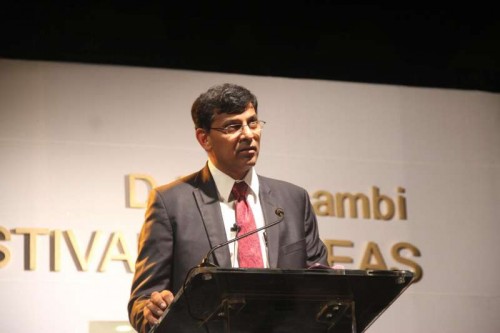Warning that the global economy is on the brink of a situation similar to the Great Depression of the 1930s, Reserve Bank of India Governor Raghuram Rajan has asked central banks from across the world to define “new rules of the game” to avert a repeat of the recent global financial crisis…reports Asian Lite News.

“I do worry that we are slowly slipping into the kind of problems that we had in the thirties in attempts to activate growth,” Rajan said here at a London Business School conference on Thursday evening.
“We need rules of the game in order to effect a better solution. I think it is time to start debating what should the global rules of the game be on what is allowed in terms of central bank action,” the RBI governor said.
“And, I think it’s a problem for the world. It’s not just a problem for the industrial countries or emerging markets, now it’s a broader game,” he added.
Rajan, who had predicted the 2008 US financial collapse and has been warning that global markets are now at the risk of a crash due to the competitive loose monetary policies being adopted by developed economies, said an international consensus was needed to be built over time.
“I am not going to venture a guess as to how we establish new rules of the game. It has to be international discussion, international consensus built over time after much research and action,” he said.
When Rajan took charge at RBI in 2013, at a time the US Federal Reserve had declared its intent to wind down its stimulus programme, the rupee plunged in value in respect of the US dollar on fears about a spiralling current account deficit.
In a series of measures, Rajan managed to stabilize the currency that also brought back investors. “Rajan’s disciplined and focussed approach in leading the Reserve Bank during his first year as governor was remarkably impressive,” British magazine Central Banking said earlier this year giving Rajan their central banker of the year award for 2015.
In 2011, he published the acclaimed “Fault Lines” on how hidden financial fractures threaten the world economy.
Pointing to the very low interest rate policies of the US Federal Reserve, the Bank of Japan and the Bank of England in a bid to stimulate their economies, Rajan has been warning that emerging markets are especially vulnerable to big shifts in capital flows triggered by the unprecedented monetary accommodation in rich countries.